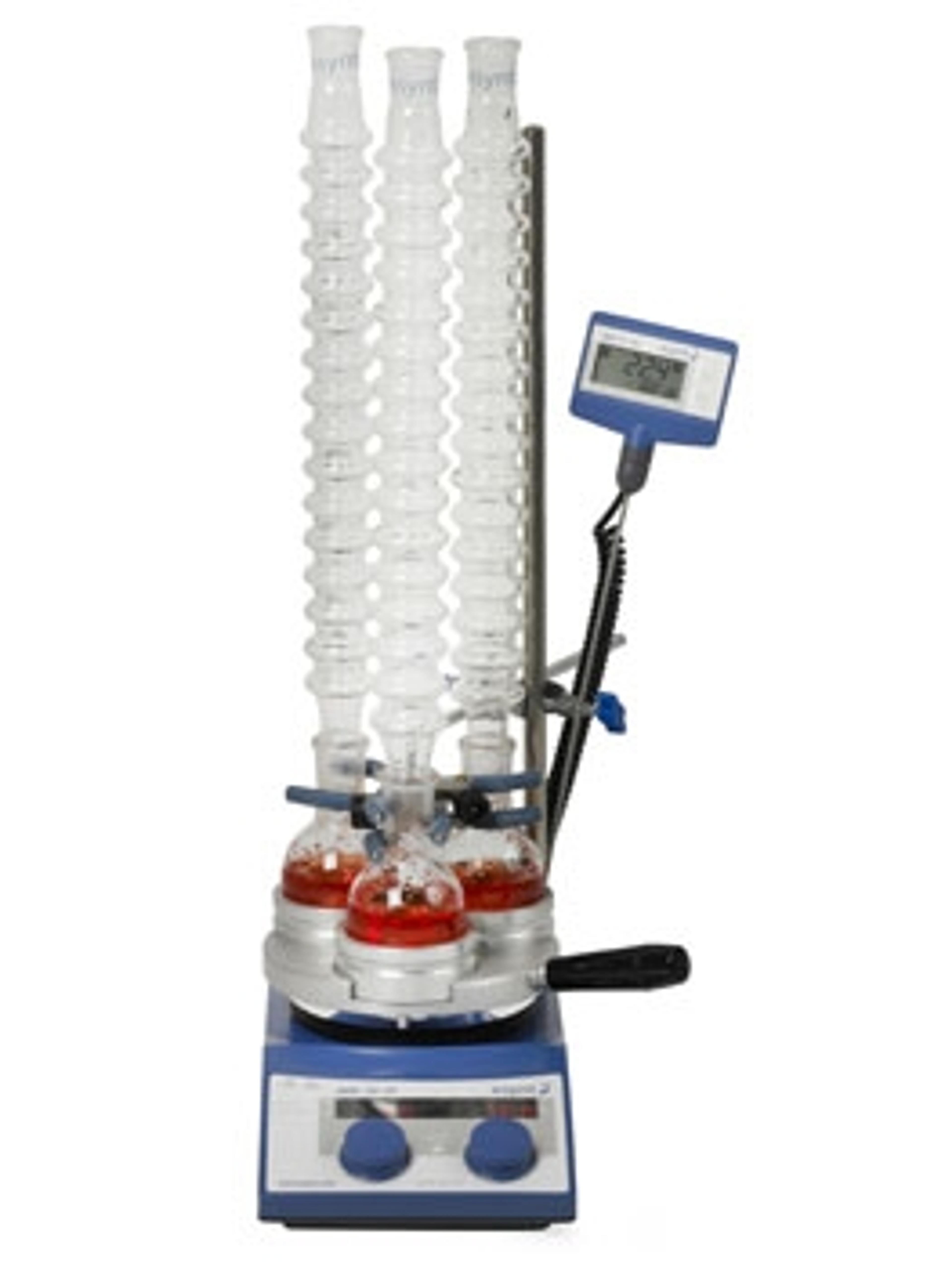Going waterless: A major step towards lab sustainability
22 Sept 2020
The CondenSyn waterless condenser from Asynt has been widely adopted by the Technicians Sustainability Working Group (TSWG) operating within the Biomolecular Science and Medicinal Chemistry Division at Nottingham University (UK) as part of their drive to make teaching and research greener.
Drawing upon their pivotal role at the forefront of laboratory work, the TSWG was formed by lab technicians from across all Nottingham University campuses. The aim of the committed members of the TSWG has been to lead green initiatives and share best sustainable practices and ideas to make the university greener and more sustainable. These initiatives have ranged from automatic recycling of 'dirty' solvents, running -80°C freezers at -70°C and installing CondenSyn waterless condensers across the laboratories in the Schools of Pharmacy and Chemistry. Currently the TSWG at Nottingham University is in talks with several other UK universities to help them set up similar sustainability working groups.
Lee Hibbett, a founder member of the TSWG and senior research support technician in the School of Pharmacy, said "Water condensers have been used in our scientific labs for decades for refluxing reactions at elevated temperature and preventing evaporation of the solvent. This is done by passing water through a jacketed glass column, cooling the vapour back into a liquid. The cooling water used in this process just ends up down the sink! Waterless condensers work by allowing air to flow over a large glass surface area, removing any heat and essentially doing the same job as the water coolant. With a typical reflux reaction running for 16 hours we calculated a single water condenser to use 20-litres of water per hour equating to a waste of 320 litres of water per reaction. Scaling this by our 37 scientists doing 2 reactions per week this equates to a saving of 1,231,360 litres of water in a year by adopting the CondenSyn waterless condensers. Consequently, I looked into what waterless condensers were available on the market and the CondenSyn from Asynt fitted our needs the best. They were easier to use, lightweight, economically priced and backed by the team at Asynt who have always provided a knowledgeable and responsive support".
Manufactured in the UK, Asynt offers a range of CondenSyn waterless condensers to optimally suit varying reaction scales. Offering clear visibility of ongoing experimental reflux, the CondenSyn is very easy to clean and maintain. The incorporation of a novel anti--roll feature helps prevent the Condensyn rolling off laboratory surfaces. Not only has the CondenSyn proved itself a sustainable alternative for reflux reactions, it can also be adapted for distillation experiments using the CondenSyn Distillation glassware. A typical laboratory, replacing standard water condensers with CondenSyn air cooled condensers, can expect to see a return on its investment in as little as 6 months.
Want more of the latest science news straight to your inbox? Become a SelectScience member for free today>>

